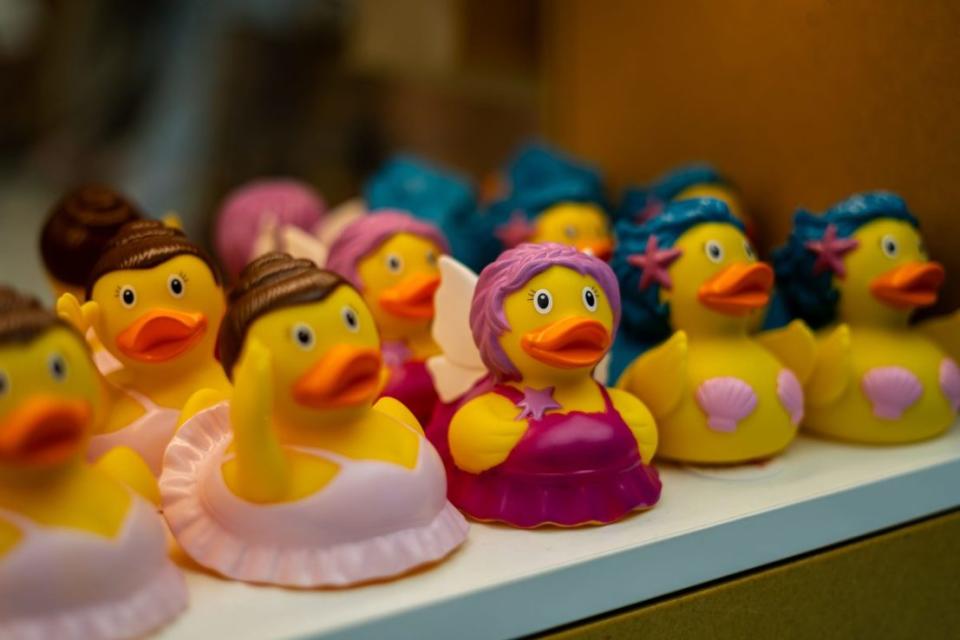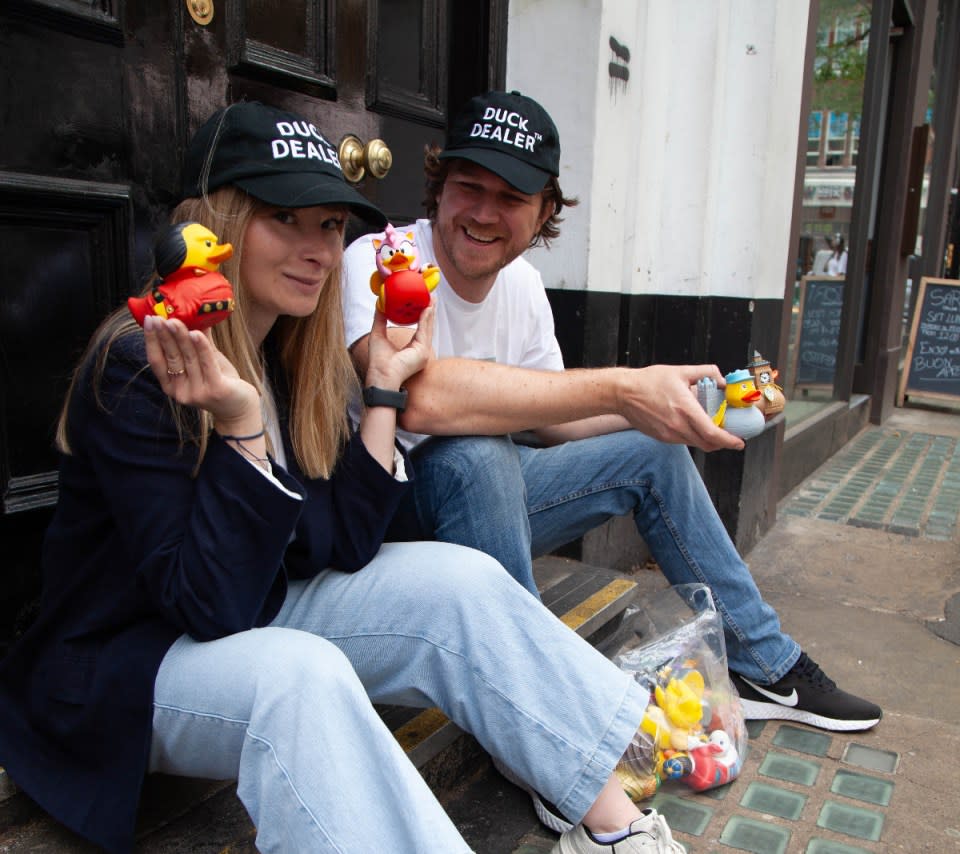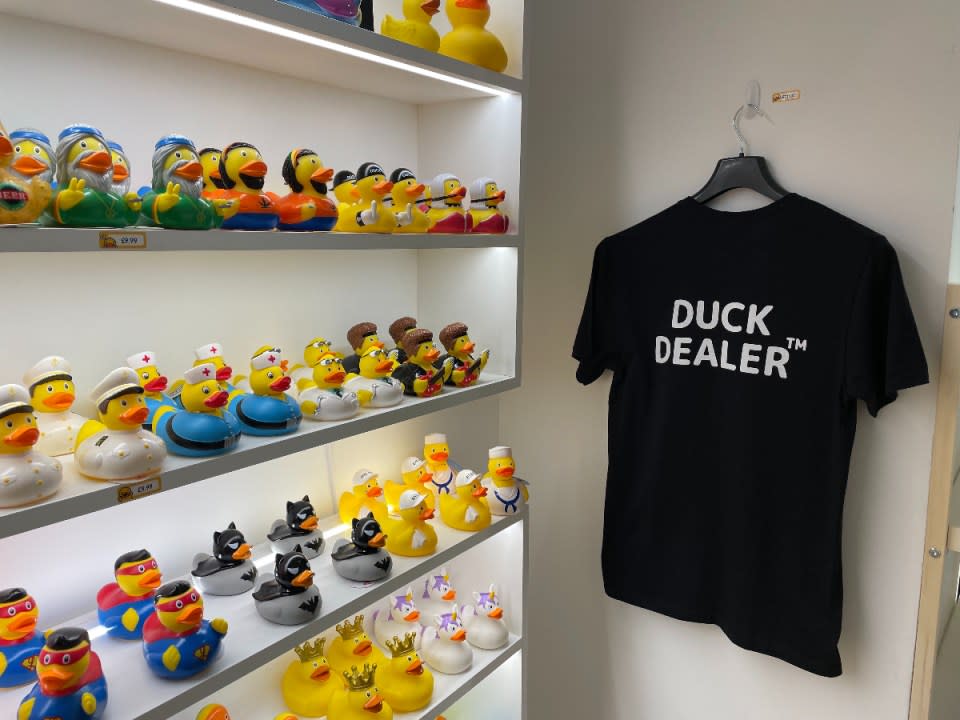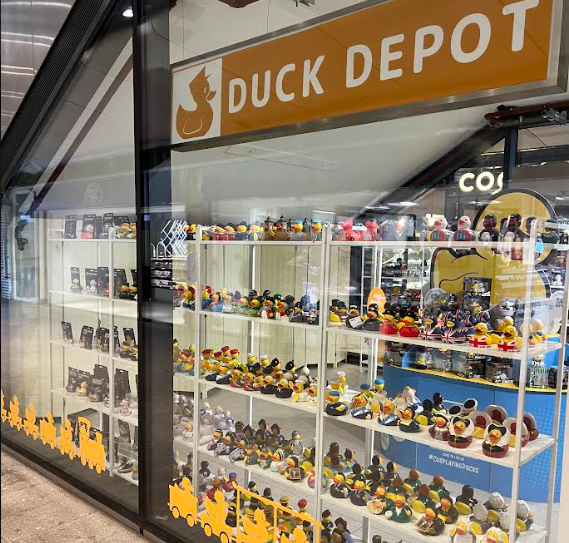Has London gone quackers? How a rubber duck shop is staying afloat in the City

Amid a backdrop of struggling UK retail, a chain of rubber duck shops in London is thriving. Anna Moloney investigates
If you work in the City, you may have recently found yourself jolted out of the slumberous autopilot of your morning commute by a new – and striking – addition to Liverpool Street Station: Duck World. An establishment entirely dedicated to the sale of rubber ducks, stocked in every size, pattern, profession but, crucially, one shape. Absorbed in a news cycle that told me London retail was on its knees, I had questions.
You could be forgiven for assuming these shops might be of dubious origin due to their similarly colourful high street peer, the American candy shop, many of which have been linked to illicit activities. But, perhaps in a surprise for the cynics, Duck World is, in fact, a legitimate business. And it seems to be booming.
But how? I embarked on an investigation, and I went straight to the top.
Meet Filip Perkon, venture-capitalist-turned-duck-aficionado, who together with his business partner Irina Fedotova set up this aquatic empire just over a year ago with the opening of Duck World’s flagship store in Charing Cross. Twelve months on and the two are now the UK’s biggest duck dealers, with “nests” in Westfield White City, Liverpool Street and an upcoming popup in Victoria Station, with the bubble bathtime companions selling for £5-£600 a pop.
So who’s buying these ducks? “I would say maybe 60 per cent tourists, about 20-25 per cent families, and then about 10 per cent would be duck collectors,” Perkon tells me matter of factly. The remaining five per cent are left to miscellany, with Perkon opening my eyes to a whole world of duck-buying demographics I had never considered.


Last-minute gifters are one lucrative source – “we made a killing on Valentine’s Day,” the shop assistant at the Liverpool Street outpost tells me. Tech bros apparently make up another promising portion of clientele, with coders having them on their desks in reference to “rubberducking”, a method of debugging code by articulating the problem to a rubber duck (though a senior quantum software engineer I consult informs me actual rubber ducks are not a common office fixture). Cruise-goers are also cited as money makers. Hiding rubber ducks on cruises is “a big cultural thing,” Perkon informs me, with there estimated to be around 1,000 rubber ducks aboard every major cruise ship in the world.
Like a duck at a fairground, I was hooked.
Nonetheless, it’s a difficult time to be in retail, Perkon acknowledges, amid skyrocketing rents, surging costs and budget-squeezed consumers. Competition for space is also challenging, with only around three or four London streets deemed profitable to be on. “High street Kensington, Chiswick, even Shoreditch is a ghost town,” he says. With most retailers now forced to operate on incredibly small margins, he warns any extra taxes will see most UK shops wiped out.
“We’re doing well though,” he caveats, with the shop’s quirky concept and Instagrammable facades leaning into the experiential retail trend, which has been deemed crucial to the future success of brick and mortar stores. A lot of Duck World’s shop assistants are out of work actors while the Charing Cross shop hosts an in-store artist multiple times a week, with customers able to customise their ducks any which way they want. “We treat the store as a bit of a stage,” Perkon, who has a background in entertainment, puts it.
Even so, turning a profit from rubber ducks in this economy will be no easy feat. “I do worry,” retail analyst Jonathan De Mello tells me with a hint of melancholy, “I don’t see them being sustainable for a long time.” My face falls. With urgency, I tell him about the coders and the cruisers and the gifters and the duck collectors – but he will not be swayed.
“They are going to need to sell these ducks in extremely high volumes to pay the rent,” he chides. “How are they going to survive without money laundering?”

It’s a sad reckoning from De Mello, but a brief stakeout at Liverpool Street’s Duck Depot gave me hope. Many rushed commuters were, just as Perkon had told me they would be, stopped in their tracks by the store’s cheery windows. A not insignificant portion went in with open purses. Some, I kid you not, smiled. And indeed, the City outpost, originally intended as a week-long venture, remains put now six months later due to the bustling trade it has found.
Amid all the obstacles, I ask Perkon why he does it. “Well, one needs to do something,” he says. Quite.

 Yahoo Finance
Yahoo Finance 